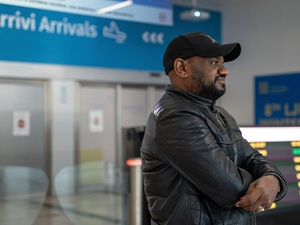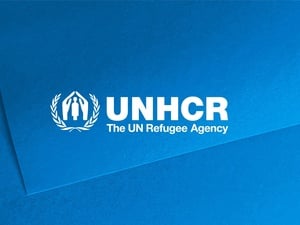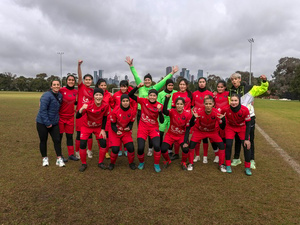Australia: Proposed new border control measures raise serious concerns
Australia: Proposed new border control measures raise serious concerns
Late last week, Australia announced that it was going to tighten its border control measures to deal with new boat arrivals saying the measures would reflect its commitment to its international protection obligations. Under the proposed legislation which we haven't seen yet, all new boat arrivals whether they arrived on the mainland or in the offshore excised area (that is, those places excised from Australia's migration zone since 2001 including Ashmore and Cartier Islands in the Timor Sea, Christmas and Cocos Islands in the Indian Ocean, and offshore resource and other installations*) would be transferred offshore to have their asylum claims processed.
UNHCR is aware of the difficulties and shares the concerns governments face dealing with people smuggling and managing irregular arrivals in their territories, including unauthorized boat arrivals. However, these proposed new measures raise some serious concerns. In particular the stated intention that persons who land on the Australian mainland - who should normally fall under the migration act and have their claims processed in Australia - will be taken offshore for assessment of their claim, with Australia's responsibilities to bona fide refugees deflected elsewhere.
If this were to happen, it would be an unfortunate precedent, being for the first time, to our knowledge, that a country with a fully functioning and credible asylum system, in the absence of anything approximating a mass influx, decides to transfer elsewhere the responsibility to handle claims made actually on the territory of the state.
This is even more worrying in the absence of any clear indications as to what might be the nature of the envisaged offshore processing arrangement. If it is not one that meets the same high standards Australia sets for its own processes, this could be tantamount to penalising for illegal entry. The widely adhered to practice is for signatory states to the 1951 Refugee Convention, like Australia, to provide to asylum seekers access to a full and fair refugee status determination process to determine their protection needs, implemented by the state authority, with the real possibility of timely and appropriate solutions; exclusion of any possibility of refoulement; and that asylum seekers should be able to live in humane, decent conditions which respect family unity while waiting for their claims to be processed and a solution found.
UNHCR would not normally substitute for a well-established national procedure such as Australia's.
* The Australian Government amended its Migration Act first in September 2001 and again in 2005 to designate certain Australian island territories as 'excised offshore places.' The laws meant that any 'unauthorised person' who arrives in an excised territory will not be able to apply for an Australian visa unless the Minister exercises his or discretionary power. The move was part of a suite of measures by Australia to deter the activities of people smugglers.








